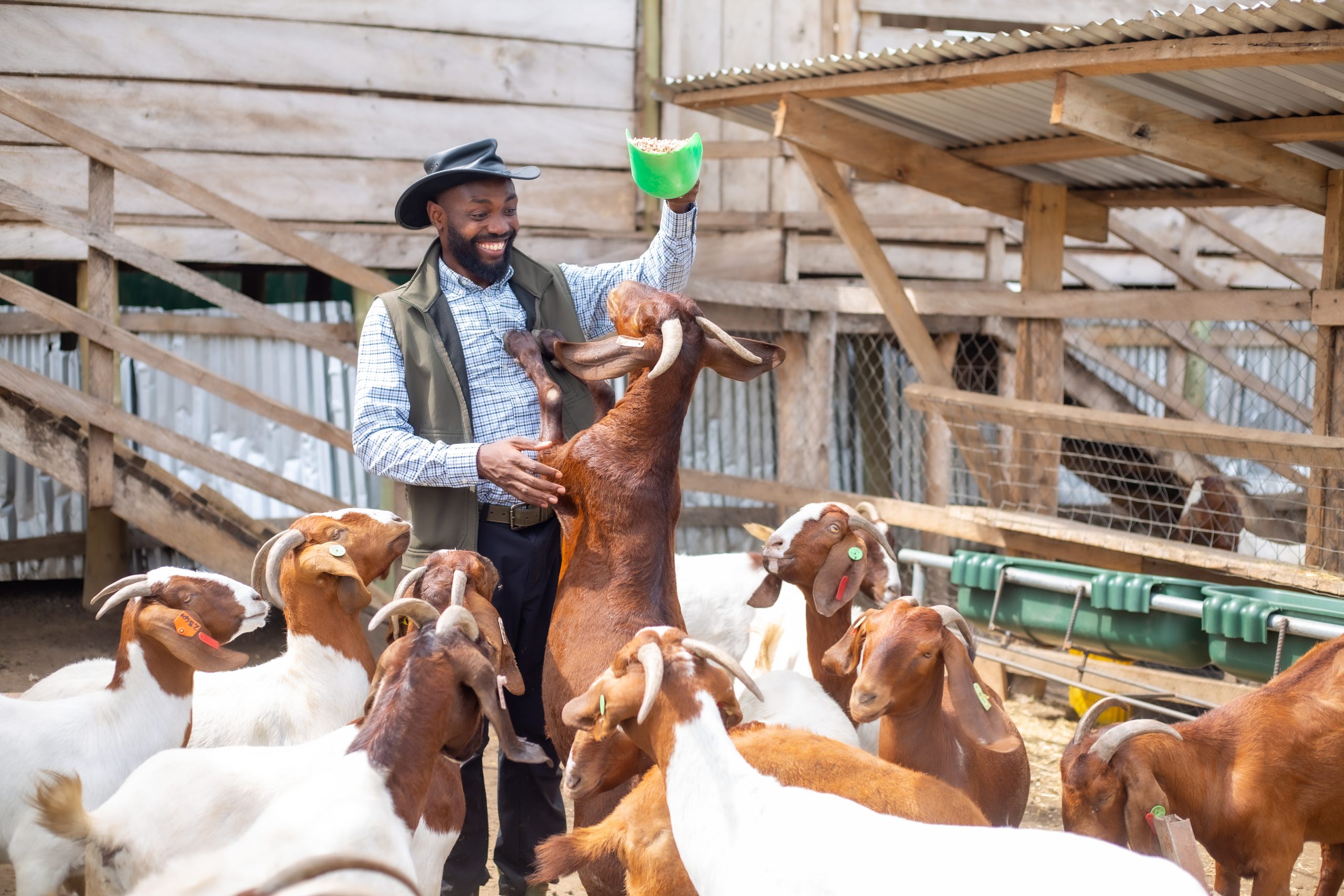When most people think about livestock farming, they picture the animals — goats, cattle, poultry. But what if we told you that the story starts long before the animals? That the key to solving food insecurity, rural unemployment, and import dependency in Africa lies not just in the livestock, but in how we build the entire system around them?
At Farming in Africa (FIA), this is exactly where we focus our energy — not just on what happens on the farm, but on the full journey from feed to fork.
Why Systems Matter in African Agriculture
Africa’s agricultural systems have historically been fragmented. One farmer raises animals with little access to quality feed. Another lacks training. A processor can’t find enough livestock to meet demand, while retailers import meat from abroad.
Everyone works in isolation. The result? A broken chain. And a missed opportunity.
At FIA, we’re breaking that cycle by asking one key question:
“What if we built the entire livestock value chain — intentionally, sustainably, and inclusively — from the ground up?”
Our Approach: Thinking in Systems, Acting Across the Chain
1. Feed the Future with Local Solutions
Our journey starts with Semanhyia Grass, a drought-resistant, nutrient-rich forage we grow and process into hay. As Ghana’s only commercial hay producer, we’re not just selling bales — we’re closing the massive feed deficit that has held African livestock farmers back for decades.
2. Breeding Quality, Not Just Quantity
Through Semanhyia Farms, we provide high-quality genetic livestock breeds suited for African climates. Healthy breeds mean more productivity, lower mortality, and increased profits for farmers.
3. Empowering Humans Alongside Animals
We invest just as much in people as we do in animals. From Livestock Management Bootcamps to on-farm mentorship and our secondary and tertiary-based institutions campaigns on ‘Changing the Narrative of Livestock Farming’ through our partnership with GIZ-ABF, we are growing the next generation of livestock enthusiasts — practical, passionate, and prepared.
4. Value-Added Processing and Market Access
The chain doesn’t stop at production. We support farmers with access to Farm inputs and equipment, and market connections, so that African livestock products can compete — and lead — in local and regional markets.
Sustainability at the Core
Every link in this value chain is built with sustainability in mind:
- Environmental: We use regenerative forage crops and organic manure cycles.
- Economic: Farmers access income through multiple points in the chain.
- Social: Women and youth are empowered to lead within a historically male-dominated industry.
We don’t believe in quick fixes. We believe in ecosystems. And ecosystems take time, care, and structure to thrive.
Why It Matters
Africa currently imports more than $4 billion worth of meat and dairy products each year. This isn’t just a supply gap — it’s a systems failure.
By taking a value chain approach, FIA is proving that Africa can:
- Produce its own high-quality livestock feed and products
- Reduce its dependency on imports
- Create rural jobs from feed production to retail
- Build resilient local economies from the bottom up
It’s not just about what we do.
It’s about what connects what we do.
From feed to fork, every choice is intentional. Every action is part of a larger system. Every farm is a node in a growing network of livestock-powered change.
Looking Ahead: The Future is Connected
If we want to feed Africa, we must start by connecting the dots — and the people — across the livestock value chain. We must stop seeing farmers, processors, and markets as separate pieces, and instead see the full picture.
At FIA, we’re not just growing animals.
We’re growing systems.
We’re growing solutions.
We’re growing Africa.
